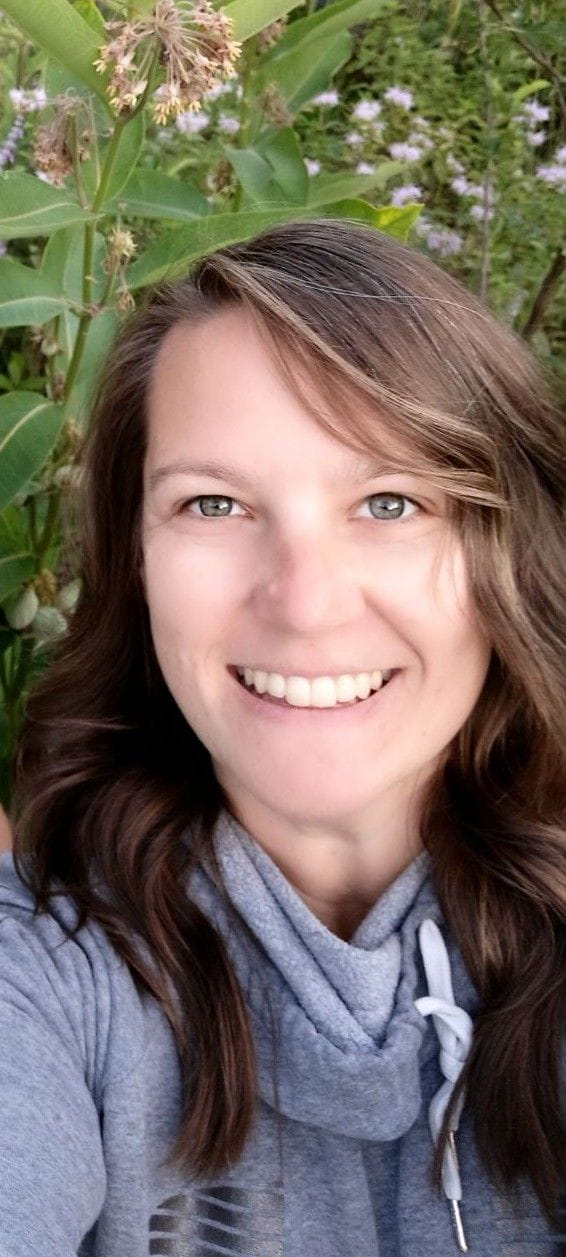The web Browser you are currently using is unsupported, and some features of this site may not work as intended. Please update to a modern browser such as Chrome, Firefox or Edge to experience all features Michigan.gov has to offer.
Fast Five with EGLEs new MI Green Schools Coordinator
June 17, 2024
Today’s Fast Five edition of MI Environment talks with Samantha Lichtenwald, the MI Green Schools Coordinator at the Michigan Department of Environment, Great Lakes, and Energy (EGLE). Michigan Green Schools is dedicated to assisting all Michigan schools public and private achieve environmental goals that include protecting the air, land, water and animals of our state through promotion of good ecological practices and environmental stewardship by students pre-kindergarten through high school.

Samantha Lichtenwald
What’s your background? How did you get interested in environmental education?
My background started in plant research at Central Michigan University, where I earned my Bachelor of Science degree in Biology, Natural Resources. My path led me to becoming a formal classroom educator for the past 11 years, primarily teaching high school biology and environmental science. During this time, I earned my master’s degree in Educational Studies at the University of Michigan, looking into bridging the gap between scientific research and science education. My love of the outdoors, passion for environmental literacy, and interest in sustainability culminated in becoming a Certified Environmental Educator – Professional through the Michigan Alliance for Environmental and Outdoor Education. Environmental education was the ideal way to offer meaningful, hands-on experiences for my students, inspiring them to become aware of and appreciate their natural surroundings.
What will you be working on as the MI Green Schools Coordinator?
My work will focus on facilitating and growing the MI Green Schools program through partnerships with schools and community organizations across the state of Michigan. The MI Green Schools program was established as a statewide program by Michigan’s Public Act 146 of 2006 and was transferred to the Michigan Department of Environment, Great Lakes, and Energy (EGLE) in 2021. Additionally, I will be developing standards-aligned educational activities and curriculum for preK-12 classrooms to support formal and nonformal educators, students, and educational institutions.
What’s your favorite environmental topic to teach about?
My favorite environmental topics to teach are ecology, biodiversity, and conservation. The interconnectedness of these topics offers insights into how organisms interact with each other and their habitat, leading to topics of behavior and evolutionary biology. I enjoy watching students make connections between these topics and gain a deeper understanding of their importance. It's especially rewarding when they start to recognize the variety of species and ecosystems in Michigan, developing a greater appreciation for their local environment.
Have you had a memorable moment where you got to see the results of your teaching?
I have been fortunate to witness many “ah-ha” moments with my students, but this past school year was especially memorable. During our Land and Water Use unit, which included human impacts on the environment, we went over many examples of how people directly and indirectly impact the planet in positive and negative ways. With each new example, there was one student in particular that was so fascinated, she could not stop asking questions. I was witnessing this student realize her passion. She started talking about these topics at home and shared with me that because of my class, she wanted to become an environmental lawyer. At graduation, her mom even came up to me and thanked me for inspiring her daughter to find her career path.
What are your goals as you start your new position?
I’m eager to get started on a variety of projects to help support students and educators in environmental education. In effort to build the MI Green Schools program, a few of my goals include: providing better access to quality resources for students and educators; fostering relationships between community partners and schools; and engaging with school administrators to encourage support for teachers pursuing certification at their school. Additionally, I am looking forward to developing curriculum resources and leading workshops to help train facilitators, ultimately building a network of environmental education leaders across the state of Michigan.